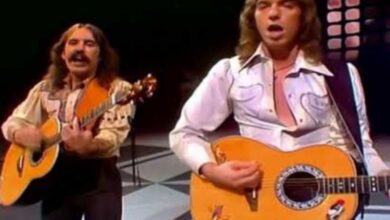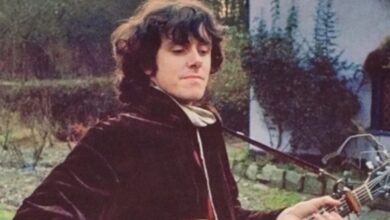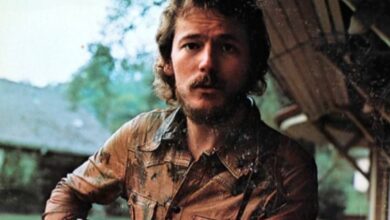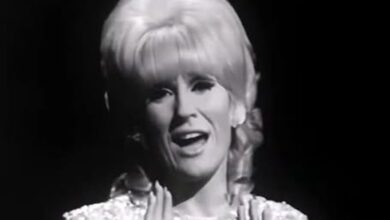Barbara Mandrell’s “I Was Country When Country Wasn’t Cool”: A Timeless Anthem Honored Across Generations
Barbara Mandrell originally recorded “I Was Country When Country Wasn’t Cool” and released it in April 1981. The track was featured on her Barbara Mandrell Live album and became her signature song, built around a theme of authenticity and pride in country music at a time when such sentiment wasn’t yet mainstream.
Despite being presented as a live recording, the popular single version was actually produced in the studio with added audience noise to simulate a concert atmosphere. The track also featured an uncredited guest chorus appearance by George Jones, whose presence gave the record additional credibility and emotional weight.
The song quickly climbed the charts, reaching number one on the U.S. Billboard Hot Country Singles chart by July 1981, and hitting number 14 on the Canadian RPM Country Tracks chart. It became a defining anthem for Mandrell, resonating strongly with fans who valued country’s roots.
At the 1981 Country Music Association Awards, “I Was Country When Country Wasn’t Cool” received nominations for both Single of the Year and Song of the Year. Its success contributed heavily to Mandrell’s recognition as one of the leading women in country music during the early 1980s.
Decades later, the song was honored again during Opry 100: A Live Celebration, marking a century of Grand Ole Opry history. On that stage, Kelsea Ballerini performed a heartfelt cover of Mandrell’s iconic track, bringing its timeless message to a new generation of listeners.
Barbara Mandrell herself introduced Ballerini before the performance. She expressed deep gratitude, clearly touched by the tribute. Afterward, the two shared an embrace on stage, creating a moment that symbolized the continuity of country music traditions across generations.
Ballerini’s rendition highlighted the nostalgic imagery in the lyrics—references to wearing straight-leg Levis before they were fashionable and listening to the Opry when her peers preferred rock ’n’ roll. Her delivery captured both respect for the song and her own emotional connection to country heritage.
The performance stood out as one of the most memorable of the Opry 100 celebration. Commentators noted how the song’s message still resonated in 2025, reminding audiences that country identity has always thrived even during times when it wasn’t considered “cool.”
The performance was pre-filmed on March 11 and broadcast during the live television special on March 19, 2025. This ensured the production quality was polished while maintaining the celebratory and emotional atmosphere of the Opry anniversary show.
Reba McEntire had also famously performed the song with Barbara Mandrell during the Grand Ole Opry’s 70th anniversary in 1996. That duet at the Ryman Auditorium showcased the chemistry between two powerhouse women in country and was remembered for its playful banter and heartfelt delivery.
During the 1996 performance, Mandrell joked about it being their first time singing together at the Ryman, while McEntire noted it was her own debut at the legendary venue. That exchange highlighted the special nature of the moment and added to the performance’s charm.
The song’s lyrics themselves embody a steadfast sense of identity: “I was country when country wasn’t cool.” These lines, paired with nostalgic cultural references, underline both the pride of staying true to one’s roots and the enduring appeal of country storytelling.
Barbara Mandrell’s career was filled with milestones. She became a Grand Ole Opry member in 1972, won back-to-back CMA Entertainer of the Year awards in 1980 and 1981, and was later inducted into the Country Music Hall of Fame—accolades that reinforced her impact on the genre.
The continued relevance of “I Was Country When Country Wasn’t Cool” shows how the song transcends generations. Younger artists like Kelsea Ballerini performing it illustrates how country tradition remains alive, celebrated, and reinterpreted by new voices in the industry.
Together, these performances—Mandrell’s original, her duet with Reba, and Ballerini’s Opry 100 tribute—trace the arc of a song that has become much more than a hit single. It is now a touchstone for country authenticity and a cultural bridge connecting decades of fans and artists.





